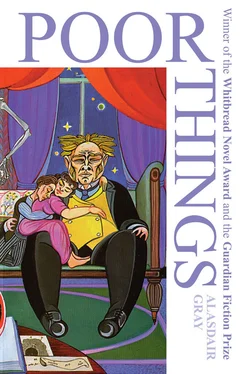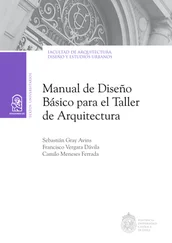Everyman’s Encyclopaedia , 1949, editor Athelstan Ridgway
22. This phrase means ‘blown up by my own bomb’. Shakespeare used it.
23. Bella misunderstood Mme Cronquebil’s dialect. The poor lady probably said ‘hole’.
24. This etching does not portray Professor Jean Martin Charcot, but Count Robert de Montesquiou-Fezensac.
25. A scramble is a Scottish custom which operated thus: children would gather outside a house from which a bride or groom would be leaving to get married. When they did so the bride’s escort or the groom was expected to fling a handful of money into the crowd — if they did not the crowd would chant “Hard up! Hard up!” indicating that the person who had disappointed them was too poor to do the right thing. If a handful of coin was flung a wild crush would follow in which the strongest, most violent and ruthless children would grab the money and the weakest and smallest be left weeping with trampled fingers. This custom still prevails in parts of Scotland. Some modern conservative philosophers will think it good training for the world of adult competition.
Anyone who cares to try the experiment can easily walk from 18 Park Circus to Lansdowne Church in less than ten minutes by way of the park. The building (designed by John Honeyman) is of cream sandstone in the French Gothic style, with the most slender spire (in proportion to its height) in Europe. The sight of it so impressed John Ruskin that he burst into tears. The interior retains an unusual arrangement of boxed pews, and has two important stained glass windows by Alfred Webster relating biblical scenes to contemporary Glasgow. Both church and congregation date from 1863.
26. The popularity of George Geddes is proved by a comic song once performed in Glasgow music-halls. It describes a disastrous outing on a Clyde pleasure-steamer and ends with the line: “Send for Geordie Geddes ’cause the boat’s gawn doon.”
27. This story has been told and retold in so many nineteenth-century anecdotal histories of Glasgow that the original sources have themselves become the subject of an exhaustive monograph by Professor Heinrich Heuschrecke: War Frankenstein Schotte? , Stillschweigen Verlag, Weissnichtwo, 1929. Those who cannot read German will find the argument neatly summarized in Frank Kuppner’s Garscadden’s Gash , Molendinar Press, Glasgow, 1987.
28. The career of this once famous soldier began as well as ended under a cloud. At Sandhurst in 1846 a fellow student fell to his death in a prank Blessington initiated, though it was probably not he who untied the victim’s boot-laces. His family connections with the Duke of Wellington perhaps led to him being reprimanded instead of expelled. In 1848 the Duke was Lord High Constable of England and organizing the military against the Chartists in London. He employed Blessington as an aide, but found him unsuitable. Rigby in his Memoirs records the Duke saying to Lord Monmouth: “Aubrey is a brave and clever soldier, but only feels alive when killing people. Unluckily most soldiering is spent waiting to do that. We must send him to frontiers as far from England as possible. We should keep him there.”
The Duke died in 1852 but his advice was heeded. Blessington’s frontier victories (often won with the help of native troops) delighted the British newspapers. George Augustus Sala called him “Thunderbolt Blessington” in The Daily Telegraph . Though not popular with his own social class he was honoured by the Queen: in other words, Palmerston and Gladstone and Disraeli recommended him for honours. Meanwhile Parliament voted him thanks and money, though a radical M.P. sometimes suggested that he “pacified” territories with undue ferocity. Most writers liked him. Carlyle called him:
a lean skyward-pointing pine tree of a man, scraped branchless by storm yet every straight inch of him stretched heavenward because rooted in Fact. Good wood for a lance! Words are less than wind to him. Not strange, then, to find him dispraised in the pow-wows of the Westminster talking-shop. Would that the lance became a lancet to cut open the boil of putrescent parliamentary verbifaction and relieve the body politic of fever-inducing poisons!
Tennyson met him at a public banquet in support of Governor Eyre and was so impressed that he wrote The Eagle . Though many people know it, few realize it is a romantic portrait of the author’s friend:
THE EAGLE
He clasps the crag with crooked hands;
Close to the sun in lonely lands,
Ring’d with the azure world, he stands .
The wrinkled sea beneath him crawls;
He watches from his mountain walls,
And like a thunderbolt he falls .
But the finest poetic tribute to Blessington is by Rudyard Kipling, who believed the General had been hounded to his death by parliamentary criticism:
THE END OF THE THUNDERBOLT
The trappers round the Hudson Bay
don’t fear the half-breeds now.
In peaceful Patagonia the farmers drive their plough.
The wily Chinese traders pursue their gains in peace
Under justice dealt out cleanly by unbribable police;
While the founder of this industry, the giver of this gain,
LIES DEAD UPON THE GUN-ROOM FLOOR—
A BULLET IN HIS BRAIN .
There’s always room in parliament
for nincompoop and knave,
And sentimental radicals who do not love the brave.
A host of lukewarm “realists” like things the way they are,
But feel the men responsible have “often gone too far”.
Then there are men responsible,
the men who get things done,
And some, like Kitchener, we cheer;
some curse, like Blessington!
Let radical and “realist” sleep soundly in their bed.
BLESSINGTON’S ON THE GUN-ROOM FLOOR—
A BULLET IN HIS HEAD .
Many a peaceful settlement that Englishmen call home
Was once a howling wilderness where nomads used to roam.
Many a half-tamed tribesman
mines ore, shears sheep, breaks colt
Because his savage forebears were struck by Thunderbolt.
Yes, we scorched them with The Thunderbolt
but would not sniff the reek.
We lashed them with The Thunderbolt
but did not like the shriek.
We split them with The Thunderbolt and,
deafened by the crash,
We smashed them with The Thunderbolt .
Some shuddered at the smash.
Our kindly English stay-at-homes
like things genteel and fair;
They prefer the Danes to Nelson,
the blacks to Governor Eyre.
But argosies are bringing England
meat, wool, ore and grain.
SIR AUBREY’S ON THE GUN-ROOM FLOOR—
A BULLET IN HIS BRAIN .
After such eulogy it is not unfair to quote two less friendly references to him. Dickens was writing Dombey and Son in 1846 when he heard about Blessington’s lethal Sandhurst prank. It gave a hint for the conversation on the front at Brighton where Major Bagstock asks Dombey if he will send his son to public school:
“I am not quite decided,” said Mr. Dombey. “I think not. He is delicate.”
“If he’s delicate, Sir,” said the Major, “you are right. None but the tough fellows could live through it, Sir, at Sandhurst. We put each other to the torture there, Sir. We roasted the new fellows at a slow fire, and hung ’em out of a three pair of stairs window, with their heads downward. Joseph Bagstock, Sir, was held out of the window by the heels of his boots, for thirteen minutes by the college clock.”
Читать дальше












